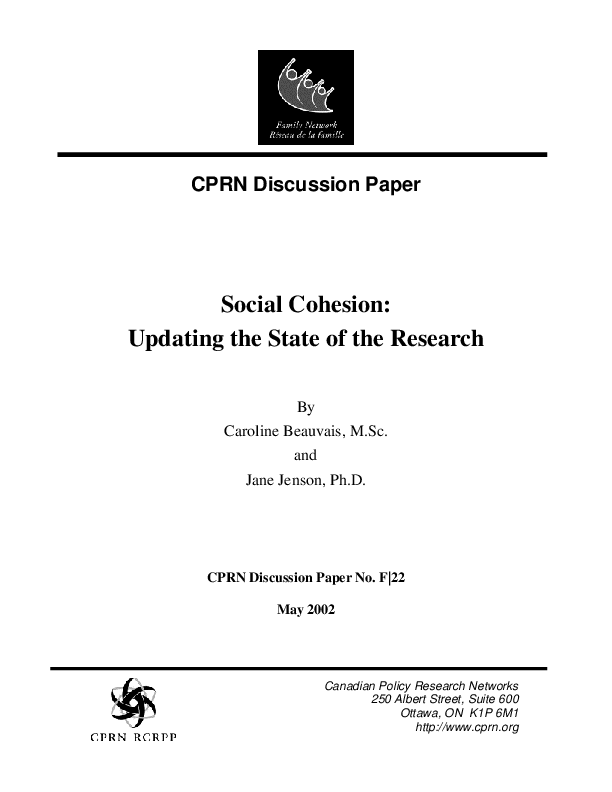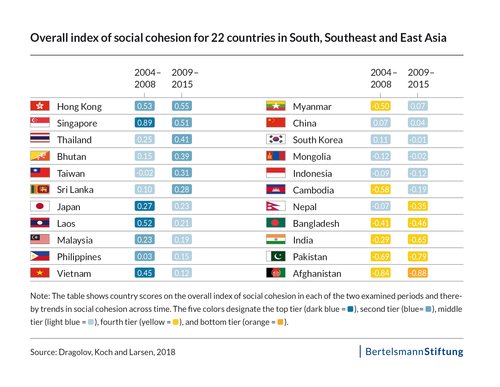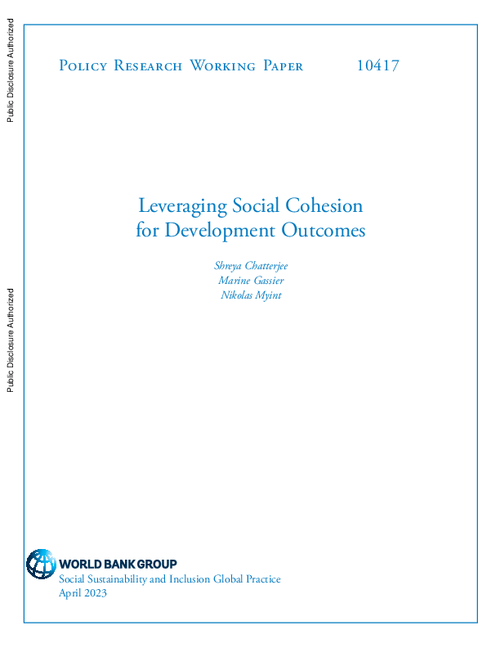Social Cohesion. Updating the State of the Research
Key facts
Participation
Equality/Inequality
Solidarity
Tolerance
Connectedness
Sub-Saharan Africa
North America
Inequality
Concept & measurement
Summary
This paper provides a structured analysis of the literature has taken over the past four years. Caroline Beauvais and Jane Jenson were asked by the Department of Canadian Heritage to conduct this review and they found that, in 2002 as in 1998, there are still many definitions of social cohesion. But this is not necessarily a weakness. Rather, social cohesion has great utility, which depends upon “its contribution to framing conversations, to helping to make sense of complex relationships, and to setting goals.” In effect, social cohesion helps us to think more clearly about how different elements in our economic and social lives are related to each other. They also argue that the debates about social cohesion are as much about political values and goals as they are about the science behind the idea.





